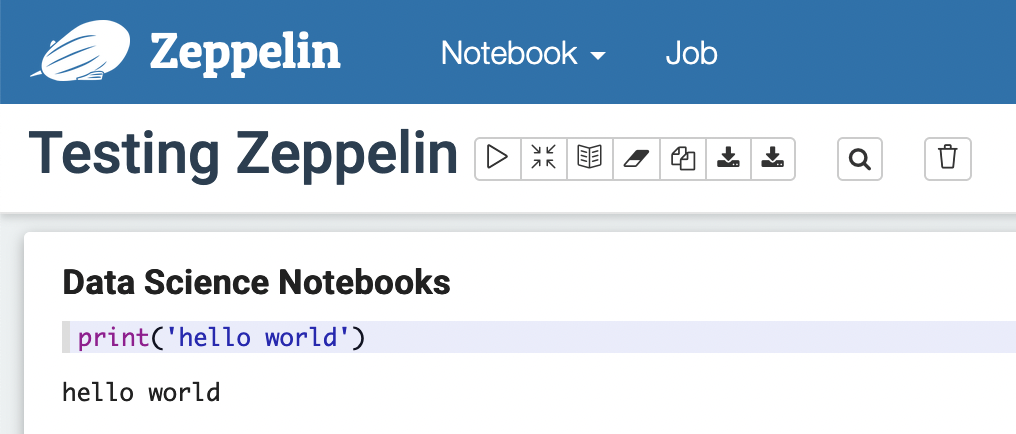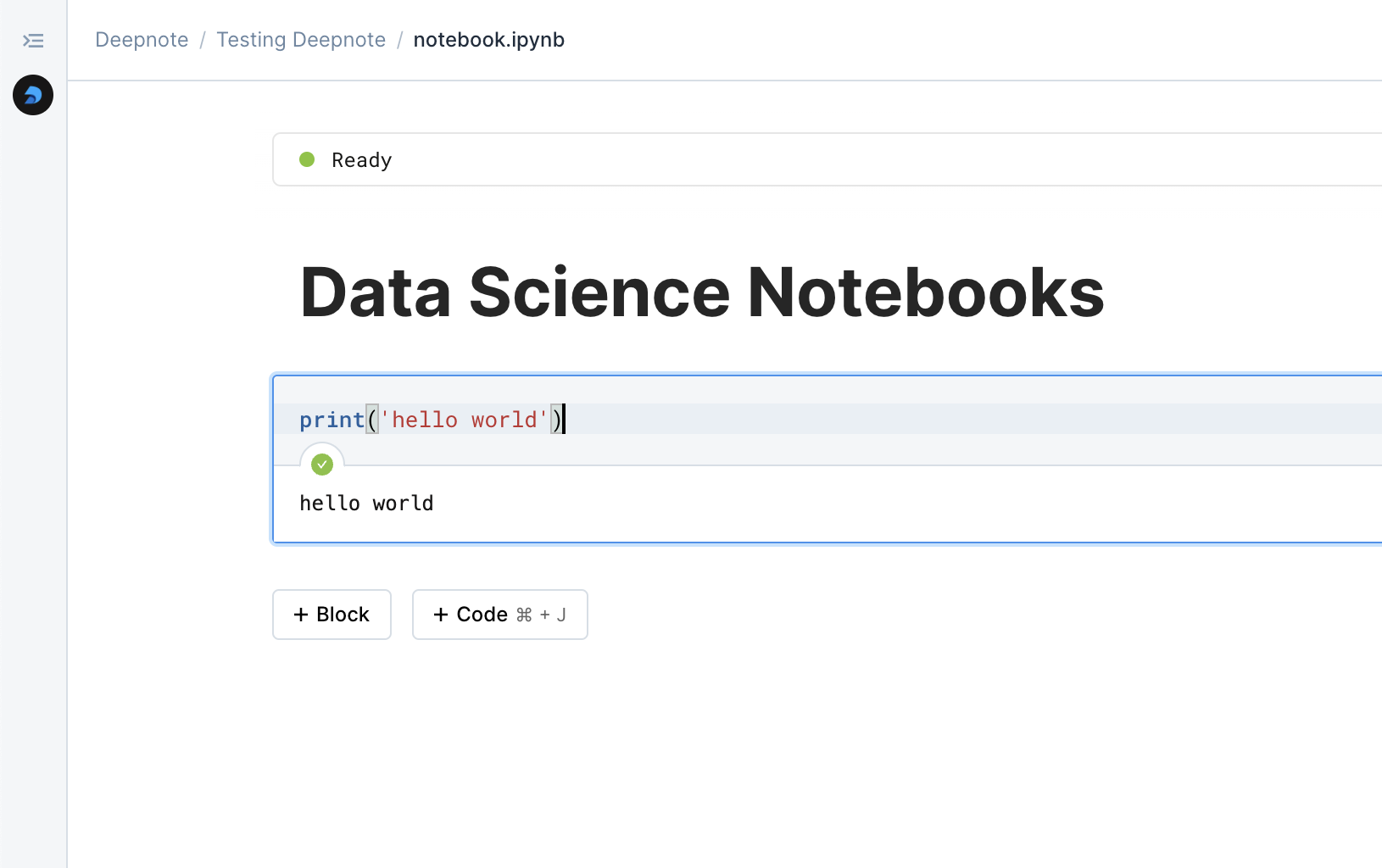

Zeppelin

Comparing two data science notebooks.






In the evolving landscape of data science platforms, Apache Zeppelin and Deepnote represent different generations and approaches to interactive data analytics. While both platforms enable collaborative data work, their architectures and focus areas reflect distinct philosophies in handling modern data challenges.
Apache Zeppelin emerged from the big data ecosystem, designed to work seamlessly with distributed systems like Apache Spark and other data processing frameworks. The platform emphasizes versatility in handling various data processing engines while providing visualization capabilities.
Deepnote takes a cloud-native approach to data science collaboration, focusing on modern workflows and real-time team interaction. The platform emphasizes accessibility and integration with contemporary data tools while maintaining professional-grade features.
Zeppelin's strength lies in its native integration with big data technologies. The platform provides robust support for:
Deepnote focuses on modern cloud infrastructure and seamless collaboration, offering:
Zeppelin's interpreter system is one of its distinguishing features, allowing users to work with multiple data processing engines within the same notebook. This flexibility makes it particularly valuable for organizations with diverse data processing needs and existing big data infrastructure.
Deepnote provides a more streamlined environment focused on contemporary data science workflows. While supporting multiple languages, its approach emphasizes modern development practices and collaboration rather than engine diversity.
Zeppelin offers a traditional notebook interface with additional features for big data visualization and processing. The platform's design reflects its enterprise origins, with robust functionality for handling complex data workflows.
Deepnote presents a more modern, intuitive interface designed for collaborative work. The platform combines familiar notebook functionality with contemporary features like real-time collaboration and integrated tools.
Zeppelin excels in handling big data workflows, particularly when working with Apache Spark and other distributed computing frameworks. Its architecture is designed to process large-scale data efficiently within existing big data ecosystems.
Deepnote approaches data processing through modern cloud infrastructure, providing flexibility in handling various data sizes and types. While it may not have Zeppelin's native big data processing capabilities, it offers broader integration with contemporary data tools and services.
Zeppelin provides basic collaboration features through shared notebooks and multi-user support. Its collaboration model is more traditional, focusing on sharing work rather than real-time interaction.
Deepnote emphasizes modern collaboration with features designed for contemporary team workflows:
Zeppelin typically requires on-premises deployment or cloud infrastructure management. This approach provides more control but requires more technical expertise and resource management.
Deepnote's cloud-native architecture eliminates infrastructure management concerns while maintaining enterprise-grade security. The platform handles scaling and maintenance, allowing teams to focus on their analytical work.
Zeppelin suits:
Deepnote serves:
The decision between Zeppelin and Deepnote often reflects organizational infrastructure and workflow requirements. Teams heavily invested in big data technologies and requiring on-premises deployment might find Zeppelin's approach more aligned with their needs.
Organizations prioritizing modern collaboration features and cloud-native workflows might find Deepnote more suitable. Its combination of accessibility and professional features creates an environment well-suited to contemporary data science work.
Both platforms continue to evolve, with Zeppelin maintaining its strength in big data processing while adapting to modern needs, and Deepnote expanding its capabilities to serve evolving data science requirements.
Apache Zeppelin and Deepnote serve different needs in the data platform ecosystem. Zeppelin excels in environments with significant big data requirements and existing infrastructure, particularly valuable for organizations deeply integrated with Apache Spark and similar technologies.
Deepnote offers a more modern, collaborative approach to data science, emphasizing team productivity and integration with contemporary tools. Its cloud-native architecture and real-time collaboration features make it particularly valuable for teams embracing modern development practices.
The choice between these platforms should align with your organization's specific needs:
Understanding these distinctions helps ensure you select the platform that best supports your data science objectives while providing the necessary tools for team success.